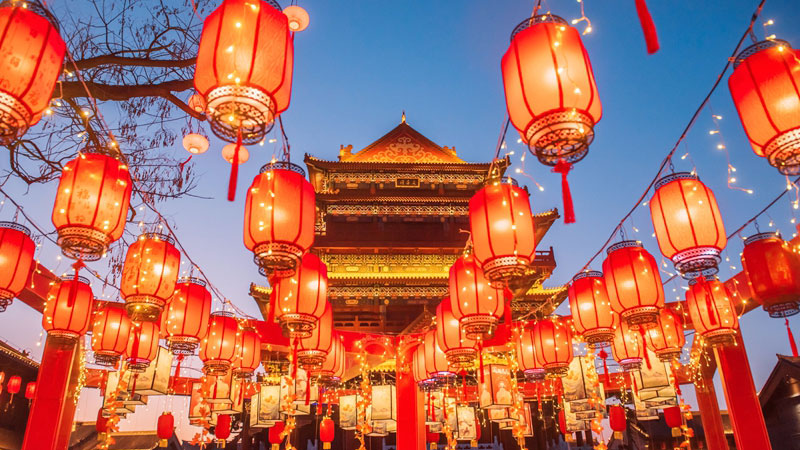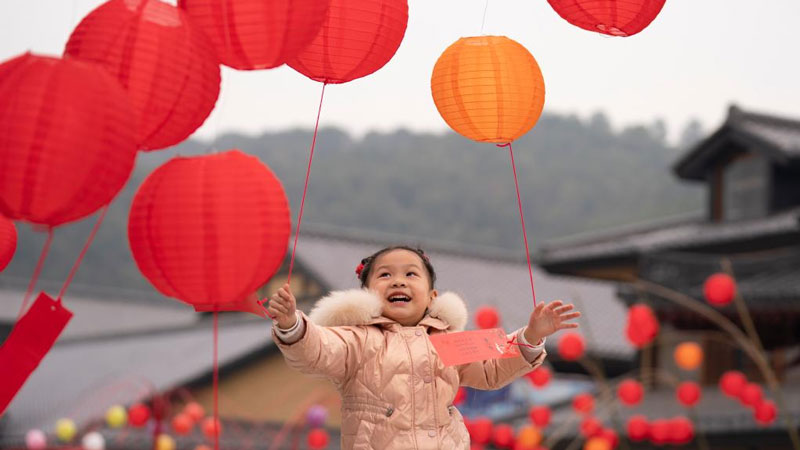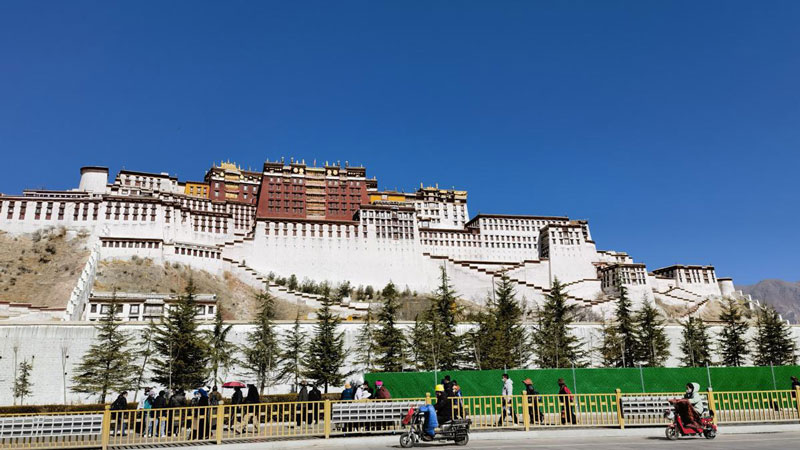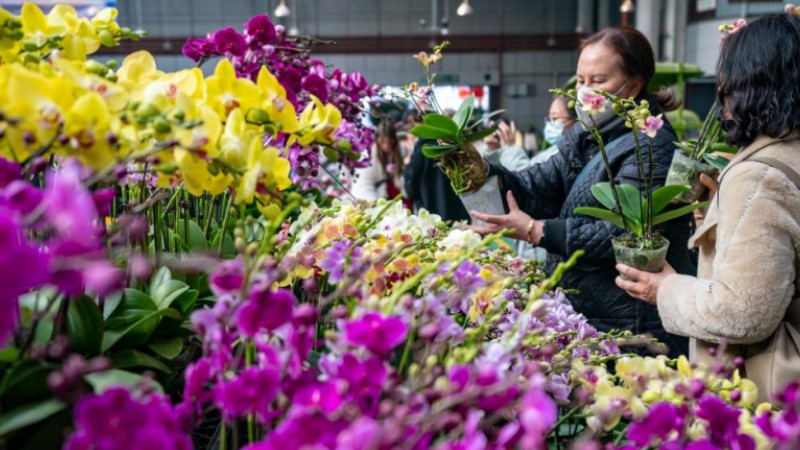How China becomes a strong buttress to UN
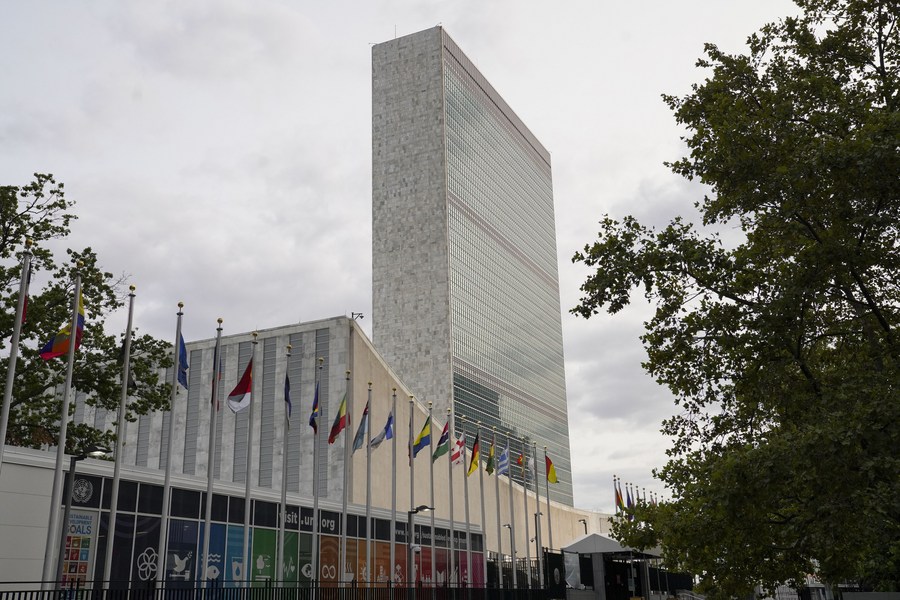
Photo taken on Sept. 14, 2020 shows the outside view of the United Nations headquarters in New York, the United States. (Xinhua/Wang Ying)
BEIJING, Feb. 4 (Xinhua) -- "A strong buttress to the blue flag (of the UN)" was how Csaba Korosi, president of the 77th session of the UN General Assembly (UNGA), depicted China in late September last year.
The UN official, who took the occasion of the 73rd anniversary of the founding of the People's Republic of China back then to acknowledge the country's contribution to promoting development and prosperity, gave credit to China's strong support of the United Nations one more time on Thursday.
China is an important partner of the United Nations, Korosi said as he is visiting the country from Wednesday to Saturday at the invitation of Chinese Foreign Minister Qin Gang.
There are good reasons for Korosi's comments. China, a permanent member of the UN Security Council and the first country to put its signature on the UN Charter, has been firmly supporting the UN-centered international system and the international order underpinned by international law, and helping build a more peaceful and better world with its wisdom and solutions.
KEY FORCE FOR WORLD PEACE
Founded at the end of World War II, the United Nations bears the expectation of all for permanent peace. Sharing its vision of maintaining peace and stability, China believes that peace is the most precious, and has practiced "harmony without uniformity" since antiquity.
Since the founding of the United Nations, China has actively participated in the political settlement of major regional hotspot issues, including the Korean Peninsula nuclear issue, the Iran nuclear issue, Afghanistan, Myanmar, and the Palestine-Israel issue.
It has been upholding the authority and unity of the UN Security Council, and supporting UN mediation in accordance with its mandate. It has also played an active role in the international arms control and disarmament process, and has acceded to dozens of international arms control treaties and mechanisms, including the Treaty on the Non-Proliferation of Nuclear Weapons.
In response to mounting conflicts and security challenges in today's world, Chinese President Xi Jinping proposed the Global Security Initiative (GSI) at the opening ceremony of the Boao Forum for Asia Annual Conference 2022.
The GSI has won wide recognition from the international community, including the United Nations. The initiative advocates that humanity is an indivisible security community. It offers Chinese wisdom to bridge the peace deficit of mankind, and contributes Chinese solutions to address global security challenges.
Regarding the ongoing Ukraine crisis, China decides its position and policy based on the merits of the matter concerned, upholds objectivity and fairness, and actively promotes peace talks.
"China's idea of being a builder of world peace, contributor to global development, defender of the international order and provider of public goods are consistent with the ideals of the UN Charter," former UN Secretary-General Ban Ki-moon has said.
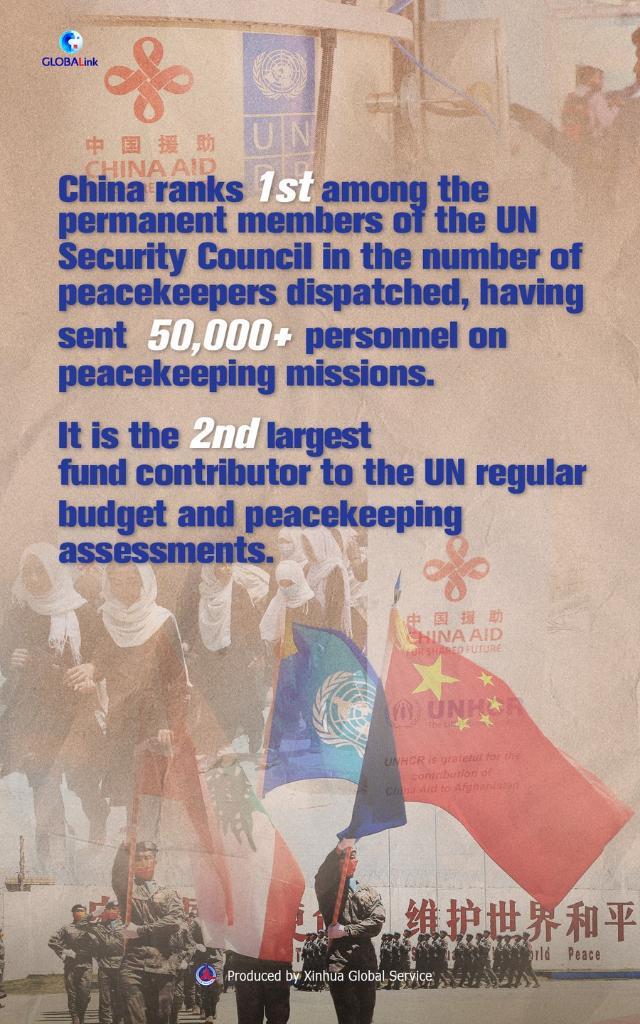
ENGINE OF GLOBAL GROWTH
"Facing the severe shocks of COVID-19, we need to work together to steer global development toward a new stage of balanced, coordinated and inclusive growth. To this end, I would like to propose a Global Development Initiative (GDI)," Xi put forward this idea for the first time at the general debate of the 76th session of the UNGA in September 2021.
The initiative aims to stay committed to development as a priority, to a people-centered approach, to benefits for all, to innovation-driven development, to harmony between man and nature and to results-oriented actions.
The GDI has yielded preliminary results. To date, more than 100 countries and a number of international organizations, including the United Nations, have committed support to the GDI, and close to 70 countries have joined the Group of Friends of the GDI.
A Global Development Promotion Center was created, with 31 countries and regional organizations joining its network. A Global Development Project Pool was set up, with the first list of 50 projects launched. A total of 1,000 human resources training programs have been conducted, including more than 50 member countries of the Group of Friends of the GDI.
Meanwhile, the Belt and Road Initiative (BRI) has become a popular international platform to promote the public good and cooperation since it was proposed 10 years ago, covering two thirds of countries and a third of international organizations in the world.
China's development and contributions will benefit many countries as the world's population exceeds 8 billion, said Natalia Kanem, executive director of the UN Population Fund.
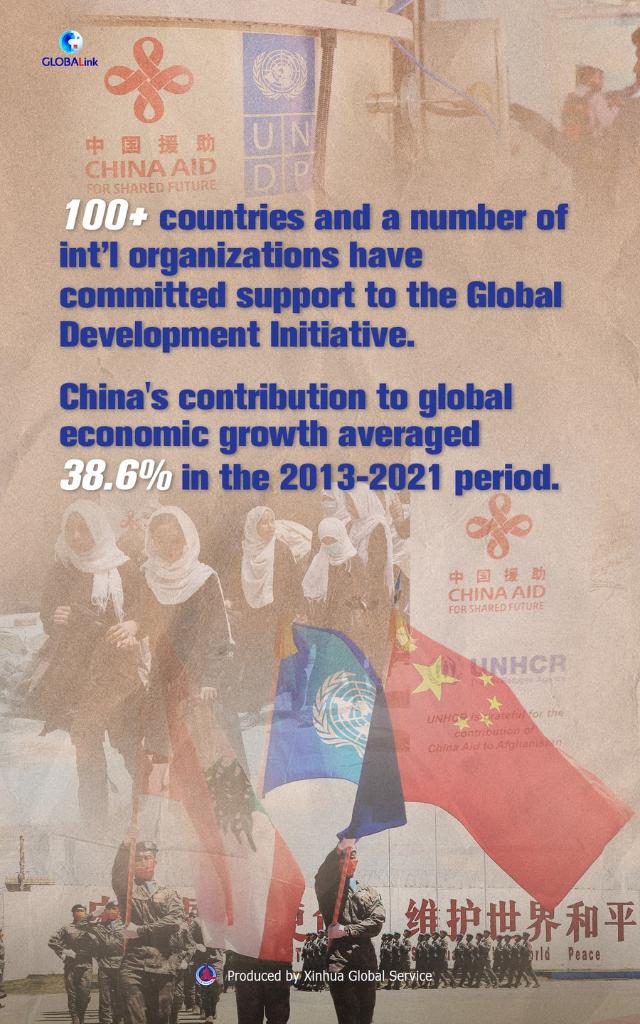
MAKING THE WORLD LESS POOR
"China has met the basic living needs of its 1.3 billion-plus people and lifted over 700 million people out of poverty, which is a significant contribution to the global cause of human rights," said Xi in his keynote speech at the UN Office at Geneva in January 2017.
In December 2020, China announced that it has accomplished its poverty alleviation target of the new era as scheduled. During eight years of sustained work, China has lifted its entire rural poor population under the current standard out of poverty.
Poverty is a chronical problem in human society. China is ready to share its experiences with the rest of the world for the global cause of poverty alleviation.
In recent years, China has supported the development of developing countries through "six 100 projects" -- 100 poverty reduction projects, 100 agricultural cooperation projects, 100 aid for trade projects, 100 ecological conservation and climate change response projects, 100 hospitals and clinics, and 100 schools and vocational training centers.
In Asia, China carried out the East Asia Poverty Reduction Demonstration Cooperation Technical Assistance Projects program in the rural communities of Laos, Cambodia and Myanmar.
In Africa, China has helped African countries build water conservancy infrastructure, set up demonstration zones for agricultural cooperation, and carried out China-Africa cooperation projects involving a Chinese-invented technology using grass to grow mushrooms.
In the South Pacific region, China has carried out technical cooperation assistance projects in infrastructure construction, agriculture and medical care.
In Latin America, China has built agricultural technology demonstration centers to help local people in recipient countries shake off poverty.
Commenting on China's poverty reduction drive, UN Secretary-General Antonio Guterres said those achievements are "the biggest contribution for dramatical reduction of poverty."
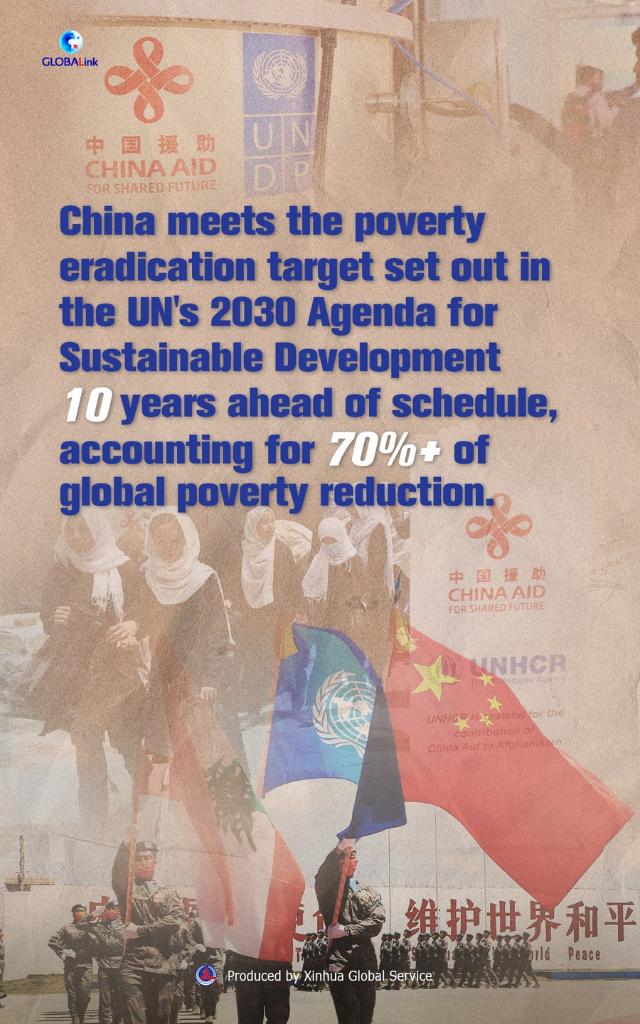
FIGHTING COVID TOGETHER
"People of different countries have come together. With courage, resolve and compassion which lit the dark hour, we have confronted the disaster head on. The virus will be defeated. Humanity will win this battle," Xi said in a statement at the general debate of the 75th session of the UNGA in September 2020, when the world was ravaged by the COVID-19 pandemic.
Since the outbreak of COVID-19, China has been sharing with the world its experience in fighting against the virus in a timely manner, assisting other countries with much-needed supplies, and actively engaging in global anti-pandemic cooperation.
So far, it has provided anti-pandemic supplies to 153 countries and 15 international organizations, and co-hosted more than 300 exchange activities on epidemic prevention and control and medical treatment with over 180 countries and regions and more than 10 international organizations.
China is also the first country to propose COVID-19 vaccines as a global public good, support vaccine intellectual property rights exemption, and champion cooperation on vaccine production with developing countries, which has injected strong impetus into bridging the global immunization gap. Applying Traditional Chinese Medicine (TCM) for the treatment of COVID-19 infections, the country has introduced TCM techniques to more than 150 countries and regions, and offered ready-for-use TCM to those in need.
Lauding China's help for developing countries in their fight against the pandemic, Romina Sudack, a member of the Study Group on China and Argentina of the National University of Rosario, said China has been implementing the vision of a community with a shared future for mankind with concrete actions.
CHAMPION OF GLOBAL CLIMATE GOVERNANCE
Championing the vision of ecological conservation, China has become a solid contributor to tackling climate change and the betterment of global climate governance.
And the Chinese president has on multiple occasions elaborated on China's propositions on jointly building a clean and beautiful world for all countries.
"Clear waters and green mountains are as good as mountains of gold and silver. We must maintain harmony between man and nature and pursue sustainable development," Xi said at the UN Office at Geneva in 2017.
In the past decade, China made historic contributions to the conclusion and quick implementation of the Paris Agreement, was among the first to adopt and release the country's National Plan on Implementation of the 2030 Agenda for Sustainable Development, and implement the obligations under the United Nations Framework Convention on Climate Change (UNFCCC).
China also announced 1+N policies for peaking carbon emissions and achieving carbon neutrality with clear timetables and roadmaps. The country has become a world leading player in renewable energy, and is mounting consistent efforts to tap the potential of a green BRI.
As the largest developing country, China is striving to build a community of life for man and nature with unprecedented ambition and action to help achieve sustainable development worldwide.
UNFCCC Executive Secretary Simon Stiell spoke highly of China's firm and consistent stand on actively tackling climate change, as well as its moves to turn climate commitments into concrete actions.
At a time when the world is facing an energy crisis, China continues to make solid progress in dealing with climate change and plays an important role in advancing the global response to climate change, Stiell said.
Photos
Related Stories
- UN chief condemns suicide bombing at Peshawar mosque in Pakistan
- UN chief calls for actions to stop online hate speech, extremism
- Enjoying festive vibes, China's tourism boom returns
- China key contributor to Cambodia's development: Cambodian senior official
- Japan's visa service in China resumes normal operations
Copyright © 2023 People's Daily Online. All Rights Reserved.






